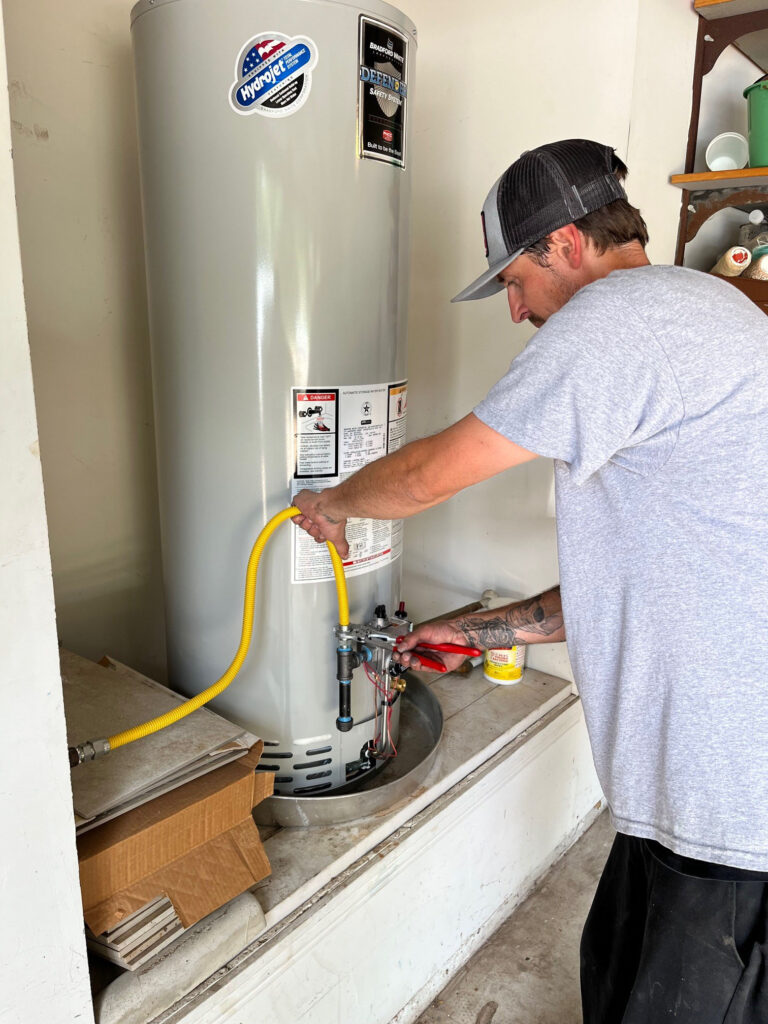
Ensuring Longevity: The Art of Water Heater Maintenance
Embarking on a journey to maximize the lifespan of your water heater? You’re in the right place. Water heater maintenance is a crucial yet often overlooked aspect of home care. Let’s explore the ins and outs of effective maintenance to keep your water heater functioning smoothly for years to come.
Routine Checks: The Foundation of Maintenance
Regular inspections are the cornerstone of water heater maintenance. Start by examining the pressure relief valve for any signs of leaks or corrosion. This valve plays a vital role in preventing excessive pressure buildup inside the tank. A quick visual check can save you from potential future issues.
Flushing the Tank: A Simple Yet Powerful Step
Over time, sediment buildup in the water tank can hinder the heater’s efficiency. Flushing the tank annually helps remove this sediment, allowing the heating element to function more effectively. This simple maintenance step not only enhances performance but also contributes to energy efficiency.
Temperature Adjustment: Striking the Right Balance
Adjusting the water heater’s temperature is not just about personal comfort; it’s a safety and efficiency measure. Set the temperature to a recommended 120 degrees Fahrenheit to prevent scalding and minimize energy consumption. Finding the right balance ensures optimal performance without unnecessary energy costs.
Inspecting Anode Rods: The Unsung Heroes
Anode rods are the unsung heroes of water heaters. These sacrificial rods prevent corrosion by attracting minerals that would otherwise attack the tank. Regular inspection and replacement of these rods, typically every three to five years, are crucial for protecting your water heater’s structural integrity.
Checking for Leaks: Early Detection is Key
Water leaks are the arch-nemesis of water heaters. Perform regular checks for any signs of leaks around the tank and connections. A proactive approach to leak detection can prevent water damage to surrounding areas and extend the life of your water heater.
Insulating the Tank: Efficiency in Every Season
Consider insulating your water heater tank to improve its efficiency, especially in colder climates. Insulation minimizes heat loss, reducing the workload on your water heater. This energy-saving measure not only benefits your utility bills but also contributes to the overall longevity of the appliance.
Inspecting the Pressure Valve: An Overlooked Hero
The pressure relief valve is a critical safety component of your water heater. Annually testing this valve ensures it functions correctly. Lift and release the valve handle to allow a burst of hot water into the drain tube. If the valve doesn’t operate smoothly, it’s time for a replacement.
Professional Maintenance: When to Call in the Experts
While many maintenance tasks can be handled on your own, there are times when professional intervention is necessary. If you notice persistent issues, unusual noises, or a drop in water temperature, it’s advisable to seek professional assistance. Experienced technicians can diagnose and address underlying problems efficiently.
Preventive Measures: Preserving Performance
Water heater maintenance is not just about fixing issues as they arise; it’s about preventive measures. Regular care, inspections, and small adjustments contribute to the overall performance and longevity of your water heater. By staying proactive, you save yourself from the inconvenience of sudden breakdowns.
Explore Water Heater Maintenance Solutions
Ready to delve deeper into water heater maintenance? Discover expert tips and comprehensive solutions at water heater maintenance. Elevate your home care routine and ensure your water heater operates at its best for years to come.










